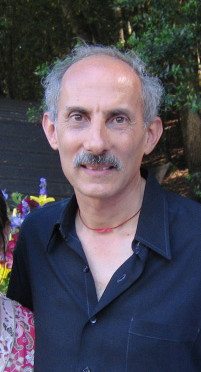Modern Zen practitioners usually sit on mats and cushions indoors but we practice outdoors whenever it’s reasonable to do so. Even the Buddha eventually established monasteries where people could sit indoors. The purpose of sitting in meditation is not to see how much hardship a person can endure. We don’t sit because we believe that… Continue reading Why do we practice Zen?
Author: ron
Founder of The Zen Practice Foundation. University of Tennessee, B.S., Industrial Engineering (1969). University of Florida, J.D. Law, (1973). Registered patent attorney.
Zen and Foolishness
The word “Zen” means meditation. However, Zen meditation is unlike Hindu, Christian, and Islamic meditation. It requires no belief in a creed, a guru, a savior, a prophet, or a god. Belief in an outside entity is a roadblock to Zen practice; the Buddha is nothing other than the true self of every apparent independent… Continue reading Zen and Foolishness
Zen And No Two Things
A man wrote a letter to the editor of The St. Petersburg Times in the spring of 2009, saying that he wanted oil companies to drill for oil in the Gulf of Mexico off the west coast of Florida “because we need a victory over the all-powerful environmentalists.” That was about a year before the… Continue reading Zen And No Two Things
Mirrors, Mind and Zen Practice
The mind is deluded if it is not the awakened mind of a Buddha. A Buddha mind does not divide reality into categories, nor does it like and dislike. Like a mirror, it simply accepts what is and its equanimity is not affected by the scene reflected in it. Equanimity is the seventh factor of… Continue reading Mirrors, Mind and Zen Practice
Karma and the Satanic Mind
If we find ourselves today in an unpleasant situation, it is because every thought we have ever had, every act we have ever performed, has brought us to that situation. Where we are now is the sum total of every thought we’ve entertained and everything we’ve ever done. That’s the law of cause and effect.… Continue reading Karma and the Satanic Mind
The Goal Of Zen Practice
As we work our way through the ten steps of the How To Practice Zen program, we will gradually begin to understand what the Augustinian monk Abraham of Santa Clara meant when he said: “He who dies before he dies does not die when he dies.” Abraham’s quote echoes the words of the Buddha: “All that… Continue reading The Goal Of Zen Practice
Zen Psychotherapy?
My unenlightened, judgmental mind tells me that Mindfulness Based Stress Reduction demotes Buddhism to just another stress-reduction program in competition with yoga classes, tai chi (taiji) exercises, and those twelve step programs. Ugh. However, if a person is under so much stress that they can’t practice, then MBSR is available for such persons and it is probably… Continue reading Zen Psychotherapy?
The Zen bunny that cooked itself
The story about the rabbit that cooked itself indicates that the rabbit was already enlightened when it did its famous (among those of us who read Jataka stories) deed. Although the term “Zen” is usually translated as “meditation,” the actual practice of sitting meditation is just part of Zen practice. Zen meditation is not the same thing… Continue reading The Zen bunny that cooked itself
Zen, the Sniper and Jesus
In the spring of 2009, I saw a pickup truck with “My boss is a Jewish carpenter” on one bumper and “This vehicle will be unoccupied in case of Rapture” on the other. Centered on the glass behind the passenger compartment was the Eagle, Globe, and Anchor (the logo of the Marines), under which appeared… Continue reading Zen, the Sniper and Jesus
Zen Practice And the Ninth Fetter
The unenlightened mind suffers from agitation. A mind that is not agitated is a mind at rest. Although there are many techniques for quieting the mind, Buddha Name Recitation works for most people. The name Amitabha or Amituo Fo has a certain charm that brings feelings of peace and quiet to those who chant it. Dharma… Continue reading Zen Practice And the Ninth Fetter









